Iqbal and Sufism (Part Five)
Besides his criticism of the West, Iqbal felt disturbed to witness the development that was taking place in the Muslim world. It saddened him to see the mushrooming of a kind of Sufism which preached to the masses to indulge zealously in all spiritual practices, and at the same time, either neglect or pay little interest in calling people to perform their worldly duties actively as mentioned in the Qur’an. It was clear to Iqbal that such a message was contrary to what the Muslims have been told to do in carrying out their duty as Allah’s vicegerent. Iqbal’s call for dynamic participation in worldly life is very relevant to the following Qur’anic message:
But seek, with the wealth which Allah has bestowed on you, the reward and happiness of the Hereafter. Do not forget your share (of the needs and provision) from this world, and be good (to others) as Allah has been good to you (by giving you more than what you needed), and do not seek mischief in the land. Allah does not like the mischief-makers (Al-Qur’ān, Al-Qasas: 77; Basmeih, 2007).
In analyzing the reason why people during the time of Iqbal thought that the material world is a hindrance to the spiritual growth of an individual, one would discover that many analysts are of the opinion that it has its reason in the historical development that took place in the Muslim world. Facts from the annals of history reveal that the political situation during Iqbal’s time was not in favour of the Muslims. The era of European colonization in the Muslim world robbed Muslims of their power to rule their own countries. This situation, which started with the fall of the Mogul and Ottoman empires, was later experienced by many Muslim countries. Devastated by the feeling of defeat, the morale of the Muslims was at the lowest abyss. This made them withdraw from active participation in politics and social life. This pathetic situation also made them lag behind in the areas of economy and education. As a means of escapism from active participation in social and political life, the Muslim masses started to seek solace and comfort for their hearts by going into Sufism. By capitalizing on the state of helplessness of the Muslim masses, some Sufi scholars called the people to the spiritual path and for the purification of their hearts and minds. What was contained in their teaching was the subtle message to abandon this worldly life and instead search for a blissful and honoured life in the next world. Iqbal, who believed in the philosophy of action, realized the situation of the Muslims, who were unable to face the challenges of the modern world. He highlighted this in his writing:
The present-day Muslim prefers to roam about aimlessly in the valley of Hellenic-Persian Mysticism, which teaches us to shut our eyes to the hard reality around, and to fix our gaze on what is described as ‘illumination’- blue, red and yellow reality springing from the cells of an over-worked brain. To me this self-mystification, this nihilism, i.e., seeking reality where it does not exist, is a physiological symptom, giving me a clue to the decadence of the Muslim world. The intellectual history of the ancient world reveals this most significant fact that the decadents in all ages tried to seek shelter behind self-mysticism and nihilism. Having lost the vitality to grapple with the temporal, these prophets of decay apply themselves to the quest of a supposed eternal, and gradually complete the spiritual impoverishment and physical degeneration of their society by evolving a seemingly charming ideal of life which reduces the healthy and powerful to death! (Iqbal, 1992: 149).
In assessing what was happening to the Muslims, Iqbal through his poems stressed that the teachings of medieval mysticism in the East were wrongfully calling the Muslims to live a life of renunciation of this world in order to gain merit in the next world. Iqbal who could not find any justification for such teachings in the Qur’an or the life of the Prophet of Islam called for vitality and dynamism through his poems and philosophical writings. In particular, he called for the banishment of the teachings of the Wahdah al-Wujūd that preaches that the ideal status of an individual in his highest level of spirituality is to get his ego to gain union with the Ultimate Ego (God).
In studying Iqbal, one would discover that at one point in his life before he left for Europe for his postgraduate studies, he was a great admirer of Ibn Al-Arabi (1165- 1240) and his teachings of the Wahdah al-Wujūd. Iqbal in his doctoral dissertation, ‘The Development of Metaphysics in Persia (1908)’ praised Ibn Al-Arabi. Later in his intellectual life, he found out that Al-Arabi’s philosophy and theosophy were not suitable for the philosophy of ego that he was developing. Iqbal later realized that Al-Arabi had been influenced by the Neo-Platonic teachings, which were theosophical in nature that showed less vitality towards life. Moreover, Iqbal too felt that the Wahdah al-Wujūd concept was not in line with the basic teachings of Islam. This change in Iqbal’s attitude from an admirer to a critic towards the type of Sufism brought by Ibn Al-Arabi can be seen clearly from the following description given in the Encyclopedia of Philosophy (1972):
Iqbal was for a long time an admirer of the Spanish Sufi Philosopher Ibn-‘Arabi (1165-1240), the most consistent advocate of pantheism among Muslim thinkers. Very soon, however, he realized that this philosophy was foreign to the simple and invigorating message of Islam, as embodied in the Qur’an and as represented in the dynamic life of Muhammad and his followers (212).
Iqbal in assessing the widespread use of the Wahdah al-Wujūd concept present in the Sufi teachings in the Muslim lands was convinced that it was the effort done by Ibn Arabi. Iqbal also believed that it was the burning passion of Al-Arabi that made him amalgamate the principles of Neo-Platonism with Islamic mysticism. Later, this amalgamated Islamic mysticism became something that was difficult for the masses to distinguish, as which part came from the Islamic heritage and what came from Greek philosophy. On commenting on the great influence Ibn Arabi had on other Sufis and poets of his time and of later generations, Iqbal said:
With this viewpoint Shaikh Muhi-ud-Din Ibn-Al-Arabi of Undolesia (Spain) interpreted the Holy Qur’an, which influenced the mind and heart of the Muslims very deeply. Due to profound knowledge and virtues of the great Shaikh and due to his gigantic personality, the doctrine of ‘Wahdatu-ul-Wujud’, had been made an essential part of the Islamic thought. FakhruddinIraqui (d. 686/1287) and Awhad-ud-Din Kirmani (d.697/1298) were very much influenced by his teachings, and gradually all the poets of the East came under the same influence (Iqbal in Nuruddin, 1978: 21).
In Iqbal’s view, the type of Tasawwuf practised during his days was not in line with the simple form of Tasawwuf practised by the Prophet and his companions. Feeling disheartened by the type of Sufism practised by the later generation of Muslims, Iqbal explained in his writing how and in what ways the Sufis have gone overboard in their spiritual practices contradicting what has been explained in the Qur’an. In realizing the problems that arise within the Islamic mysticism of his time, he assertively made the following comments on Tasawwuf:
[It] is always a sign of decline of a nation. Greek mysticism, Persian mysticism, Indian mysticism- all are signs of decline of these nations; the same is true of Islamic mysticism. The Sufis of the earliest days of Islam were ascetics. Austerity and a God-fearing piety were their real concerns. In the Tasawwuf of later times metaphysics and theorizing mixed. Tasawwuf then ceased to be mere asceticism and mingled with philosophy. Hama Ust [All is He], the slogan of the pantheist, is not a religious but a philosophical theme. Islam has nothing to do with wahdat and kathrat. The essence of Islam is Tawhid and the opposite of the latter is not kathrat but shirk. Any philosophy or religious teaching that prevents the blossoming and maturing of the human personality is worthless. Tasawwuf has inflicted much damage to the scientific spirit. People run after amulets instead of consulting a physician. To shut one’s ears and eyes to the material world and to emphasize only the inward perception is a sign of stagnation and degeneration. It is the search after easy ways instead of making the effort for the conquest of nature by dynamic struggle. I think the forbidden tree means Tasawwuf. Pure Islamic Tasawwuf is that in which the divine injunctions become imperatives ensuing from one’s own wishes (Iqbal in Rahbar, 1971: 53-54).
Iqbal’s criticism of the type of Tasawwuf practised by some quarters of the Islamic Sufi movement was mainly because he sensed that there were some similarities found in the teachings of Tasawwuf with that found in the Hellenistic, Vedanta and Buddhist philosophies of life. Very particularly, the Sufi teaching on ‘Fanā’ Fillah’ (self-annihilation in God) in order to attain spiritual union with God seems to have some similarities with the Nirvana concept preached in Hinduism and Buddhism. According to Iqbal, the Sufi concept that preaches that at the highest level of spirituality, the soul of a Muslim reunites with Allah is a concept, which is foreign to Islam. Contrary to the Sufi concept, Iqbal believed in a concept, which makes a distinction between Allah as the creator and man as His creation. Though the human soul originates from Him, the demarcation line between the Creator and the creation (God and Man relationship) should be maintained under all circumstances. In addition to that, Iqbal also strongly believed that man in his highest level of spirituality could not be absorbed into Allah. On the contrary, he believed that it is only possible for man to assimilate Allah’s Divine attributes into his characters. This idea of Iqbal has its basis on what has been stated by the Prophet, when he said, ‘Takhallaqū-bi-akhlāq Allāh (Imbue yourselves with the attributes of Allah). In giving a commentary on this Hadith, El-Muhammady (2002) stated:
It is not that man imbibes the qualities of God within him, for that would be unthinkable spiritually and theologically, but that man struggles to build his character based on lessons which he gets from contemplating on the meanings of the Names of God. This is in accordance with the famous remarks from spiritual masters: “The Lord remains the Lord even though He descends (in self-manifestation) and the servant remains a servant however high he ascends (167).
In analyzing further, the famous concept of the Wahdah al-Wujūd that states, man in his relationship with God is like a Qatrah (drop) while God is the Bahr (Ocean). According to the proponents of Wahdah al-Wujūd, the highest achievement of man in his spirituality is to get himself drown in the Ocean of God and become one with Him, as he is just a trivial drop of water. As an antithesis to this teaching, Iqbal came up with a new concept, which is contrary to the old ideas of the Sufis. In his new concept, though he still preferred the analogy of God being the Ocean, and man being a drop slipping into it, he emphasized that it is not in the moral or spiritual teachings of Islam for man to go into a state of non-existence. Instead of man effacing his personality by slipping into the Ocean of God, man has to transform himself into a ‘Shining Pearl’ by having a more profound personality. In other words, Iqbal does not want man’s individuality to lose its existence but rather through the mercy and kindness of God, man should become dynamic by having some of His Divine attributes actualized in him. As a result of this, man becomes stronger in his personality.
About author: Dr. Mohd Abbas Abdul Razak is Assistant Professor in the Dept. of Fundamental & Inter-Disciplinary Studies Kulliyyah of Islamic Revealed Knowledge & Human Sciences at IIUM.
Disclaimer
The views expressed in this article are the author’s own and do not necessarily mirror Islamonweb’s editorial stance.

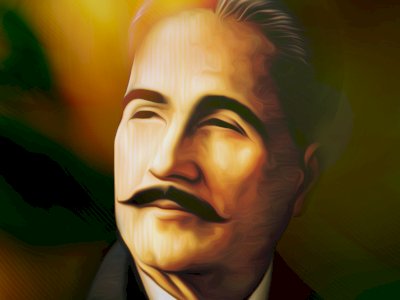


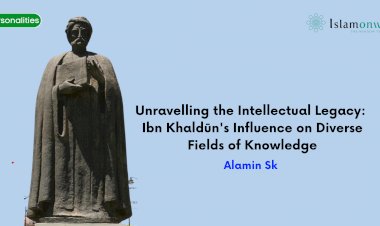

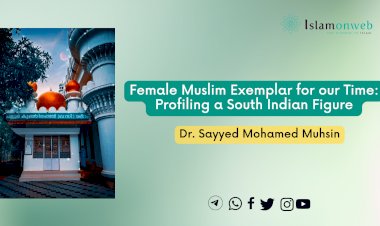
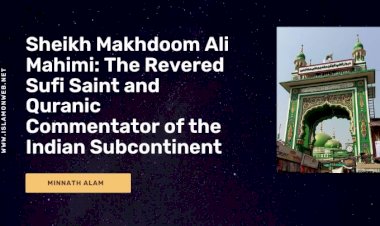

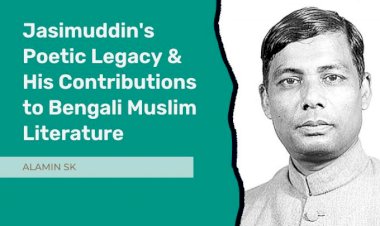














Leave A Comment